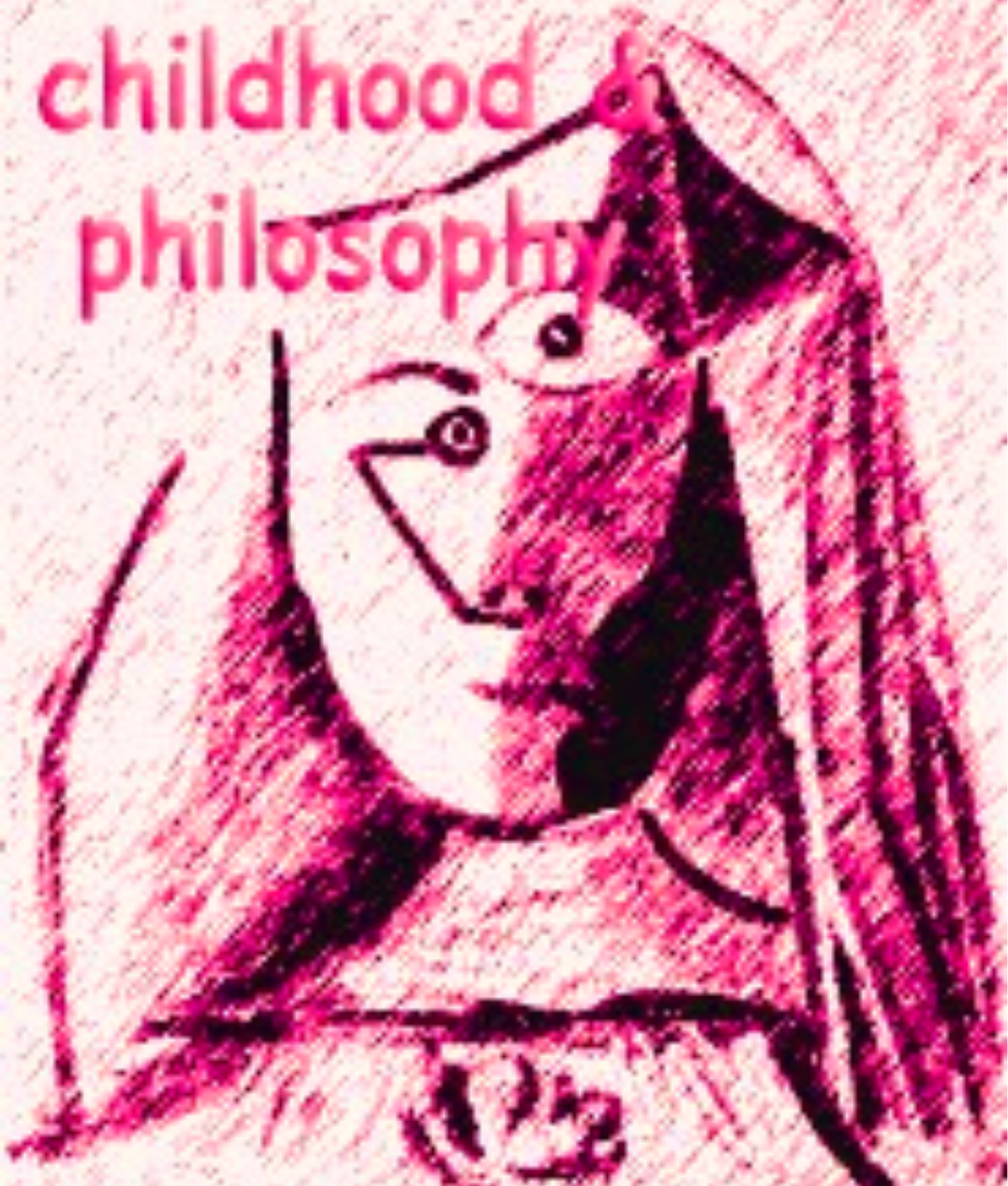imediatez pedagógica, escuta e significado silencioso: ensaio de exercícios em filosofia e literatura para educadores da primeira infância
DOI:
https://doi.org/10.12957/childphilo.2022.66527Palavras-chave:
filosofia da infância, educação infantil, literatura, silêncio, imediatez.Resumo
Este ensaio se concentra no filosofar que acontece fora e além das discussões filosóficas planejadas, filosofar que ganha vida na prática, que se intensifica nos encontros das crianças com o mundo, com os outros, com a linguagem, em jogo. Ele contempla como adultos, educadores e pais encontram as crianças e são afetados pelas explorações filosóficas das crianças. Qual é o papel do adulto no questionamento filosófico das crianças? Como podemos responder ao questionamento filosófico das crianças? O que significa fazer isso? O ensaio explora exercícios filosóficos para educadores da primeira infância em uma série de exemplos da literatura - memórias, autobiografias, ficção e obras que brincam entre elas. Ao pensar através desses exemplos literários, ele investiga na forma como os educadores podem se preparar para encontros filosóficos com crianças através de exercícios de leitura e pensamento. Ao fazer isso, o ensaio experimenta uma forma de escrita que por si só se torna um exercício filosófico. Através dos exemplos e exercícios, o ensaio sugere como os educadores da primeira infância podem se preparar para uma imediatez pedagógica que envolve a escuta do questionamento filosófico e existencial nas brincadeiras, birras e silêncios das crianças. As investigações e leituras dos exemplos não pretendem levar a conclusões que possam ser aplicadas diretamente nas práticas pedagógicas; nem funcionam como argumentos para ouvir ou escutar de uma forma particular as crianças. O que obtemos, e o que estou procurando, é antes a experiência de trabalhar e pensar através destes exemplos.
Downloads
Referências
Boström Knausgård, L. (2019). Welcome to America. New York: World Editions.
Cavell, S. (1979). The Claim of Reason. Oxford: Oxford University Press.
Cavell, S. (1989). This New yet Unapproachable America: Lectures After Emerson and Witt-genstein. Chicago: Chicago University Press.
Diamond, C. (1991). “The Importance of Being Human”. In D. Cockburn (ed.), Human Be-ings. Cambridge: Cambridge University Press.
Hadot, P. (1995). Philosophy as a Way of Life. (A. Davidson, Ed.). Oxford: Blackwell Publishing.
Von Goethe, J. (1984). Faust I & II, Volume 2: Goethe’s Collected Works - Updated Edition (Atkins S., Ed.). Princeton; Oxford: Princeton University Press.
Johansson, V. (2019a). Literature and Philosophical Play in Early Childhood Education: A Humanities Based Approach to Research and Practice. London: Routledge.
Johansson, V. (2019b). Filosofi i tidig barndom: Omedelbarhetens pedagogik. Malmö: Gleerups.
Kohan, W. (2014). Philosophy and Childhood: Critical Perspectives and Affirmative Practices. New York: Palgrave Macmillan.
Kohan, W. (2015). Childhood, Education and Philosophy: New Ideas for an Old Relationship. London: Routledge.
Kohan, W. (2021). Paulo Freire: A Philosophical Biography. London: Bloomsbury.
Lenz Taguchi, H. (2010). Going Beyond the Theory-Practice Divide in Early Childhood Education. London: Routledge.'
Lindgren, A-L. (2020). Etik, integritet och dokumentation i förskolan. Malmö: Gleerups.
Marcus Aurelius (1944, repr 1968). The Meditations of 11th Emperor Marcus Aurelius vol 1 & 2, (A.S.L. Farquharson, ed., trans. and commentary). Oxford: Oxford University Press.
Moi, T. (2017). Revolution of the Ordinary: Literary Studies After Wittgenstein, Austin and Cavell. Chicago: Chicago University Press.
Murdoch, I. (2014). The Sovereignty of Good. London: Routledge.
Oz, A. (2004). A Tale of Love and Darkness. (N. de Lange trans.). London: Chatto & Windus.
Plato (2000). The Republic. (G. R. F. Ferrari, Ed. T. Griffith, Trans.). Cambridge: Cambridge University Press.
Rhees, R. (2000). Discussions of Simone Weil. New York: SUNY Press.
Skolverket (2018). Läroplan för förskolan. Lpfö 2018. Stockholm: Skolverket.
Taylor, C. (2016). The Language Animal: The Full Shape of the Human Linguistic Capacity. Cambridge, MA: Harvard University Press.
Weil, S. (1973). Waiting for God. (E. Crawfurd, Trans.). New York: Harper & Row.
Weil, S. (2002). Gravity and Grace. (E. Crawford & M. von der Ruhr Eds. & Trans.). London: Routledge.
Wittgenstein, L. (1953). Philosophical Investigations (4th Ed.). (G. E. M. Anscombe, P. M. S. Hacker & J. Schulte, Trans.). Oxford: Blackwell Publishing.
Wittgenstein, L. (1980). Culture and Value. Oxford: Basil Blackwell.




